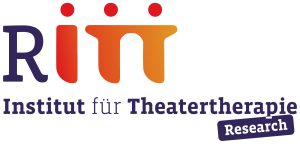Research / R-ITT 
People and Visions
ABOUT US
R-ITT Director
Ilil Land-Boss (since Okt. 2025) Drama Therapist, Actor, Co-Director of the Sommerakademie für Theatertherapie, Germany
R-ITT Advisory Board
Ingrid Lutz (M.A.) Drama Therapist, supervisor, Director of the ITT – Institut für Theatertherapie, Co-founder R-ITT, Germany
Susana Pendzik (PhD) Drama therapist, supervisor, Professor of Dramatherapy a.o. at the Tel-Hai Academic College in Israel, Co-editor of the Dramatherapy Review (U.K.) Israel/Argentinien
Nisha Sajnani (PhD) Drama therapist, actor, Director of the NYU Steinhardt Drama Therapy department, Co-founder & director of the World Alliance of Drama Therapy, Co-editor of the Drama Therapy Review (USA), Former board member of the NADTA USA
Anke Schäfer (M.A.) Drama therapist, supervisor, artist, Co-founder of the R-ITT, former director (Okt. ‘20-Okt’25), Former board member of the German WFKT and the Dutch NVDT Germany/ Netherlands
Anna Seymour (PhD) Dramatherapist, actress, Eremitus Professor of Dramatherapy at the University of Roehampton, Editor of several Dramatherapy books U.K.
See more https://www.theatertherapie.org/ueber-uns/dozentinnen/
VISIONS
Positioning
The Research Institute of Theatre Therapy (R-ITT) was founded in April 2021 to fill a significant gap in the research landscape of artistic therapies. As an integral part of the Institute for Theatre Therapy, the R-ITT Research Institute aims to promote dialogue and cooperation with existing research institutes and research organizations in the field of artistic therapies and drama therapy, including at the international level. The promotion of drama therapy research, based on transdisciplinary and transcultural anthropology and sociology, will be a key focus of the institute. Furthermore, the R-ITT Research Institute aims to inspire practicing drama therapists as well as colleagues from psychology, anthropology, sociology, medicine, and other related fields who are interested in research to engage in drama therapy research, and conduct their own research. The R-ITT Research Institute also aims to provide advice on intended research projects.
With the founding of the R-ITT, we aim to open up areas of research for aspects of dramatherapy that are only marginally addressed by current research approaches, which are increasingly oriented toward medical evidence and efficacy factors. For example, the critical reflection of socially conditioned structures of power and powerlessness, as well as the transcultural divergence in the perception of body, mind, and interpersonal relationships.
We therefore consider the findings and the methods of research of critical and medical anthropology to be particularly suitable for gaining helpful insights and develop methods for the current therapeutic and psychosocial challenges.
We warmly invite those interested in research to take a closer look at thr drama therapy methods from the fields of social theater, theater for change, action theater, theater of the oppressed, and ritual theater. In a multidisciplinary clinical context, we also consider these roots of dramatherapy to be relevant and particularly helpful when it comes to supporting people from different social backgrounds and cultural contexts through crises.
Further Information:
If you would like to receive information about R-ITT research dates and activities by email, please send an email to:
Ilil Land-Boss, land-boss@theatertherapie.org

